What is an Air Purifier Ionizer?
An air purifier ionizer is a type of air cleaning device that utilizes ionization technology to enhance indoor air quality. Unlike standard air purifiers that primarily employ filter systems to capture airborne contaminants, ionizer models work by charging particles in the air, causing them to adhere to surfaces or clump together. This process effectively reduces the number of pollutants, allergens, and harmful microorganisms in the environment.
The core component of an air purifier ionizer is the ion-generating plate, which emits negative ions when activated. These negatively charged ions attract positively charged particles—such as dust, pollen, smoke, and pet dander—enabling them to settle out of the air or adhere to surfaces. As a result, ionizers can significantly lower particulate matter, leading to improved air quality, especially in environments susceptible to allergens and pollutants.
It is essential to distinguish between traditional air purifiers and those employing ionization technology. While conventional units often rely on HEPA filters or activated carbon to trap contaminants, air purifier ionizers do not necessarily require these physical filters. Instead, they create a natural process of purification by inducing electrical charges. This difference not only affects the method of air cleaning but also plays a role in the maintenance and operational costs associated with these devices.
The benefits of air purifier ionizers are considerable. They can particularly assist individuals suffering from allergies or respiratory conditions by reducing airborne irritants. Furthermore, ionization can help neutralize unpleasant odors and promote a healthier indoor environment. As air quality has become a central concern for many households, the integration of air purifier ionizers presents an innovative solution for improving overall health and well-being.
Benefits of Using Air Purifier Ionizers
Air purifier ionizers offer numerous advantages that contribute significantly to improving indoor air quality. One of the primary benefits is their effectiveness in removing dust, allergens, and pollutants from the air. These devices work by emitting negatively charged ions that attach to positively charged particles such as dust, pollen, and pet dander. As a result, these contaminants clump together and become heavy enough to settle on surfaces, thereby reducing their presence in the air we breathe.
In addition to addressing common allergens, air purifier ionizers are efficient at eliminating unpleasant odors. This characteristic is particularly beneficial in environments where unwanted smells—such as cooking fumes or pet odors—can linger. The ionization process neutralizes odor-causing molecules, promoting a fresher and cleaner air atmosphere.
The impact of air purifier ionizers on respiratory health is profound. By reducing airborne pollutants and allergens, these devices can alleviate symptoms associated with asthma, allergies, and other respiratory conditions. Users of ionizers often report easier breathing and enhanced overall well-being as they experience fewer irritants in the air.
Moreover, many ionizers possess potential antimicrobial properties, helping to decreased the presence of harmful bacteria and viruses in enclosed spaces. This feature creates healthier living environments, especially in homes with vulnerable individuals, such as children and the elderly.
Beyond their health benefits, air purifier ionizers are recognized for their cost-effectiveness and energy efficiency. They typically consume less power than traditional air purifiers with filters, making them an economical choice for continuous use. Additionally, they require minimal maintenance since they do not rely on filter replacements. This practicality, combined with their capacity to improve air quality, makes air purifier ionizers an appealing option for households and offices alike.
Potential Drawbacks and Considerations
While air purifier ionizers can effectively improve air quality, there are several potential drawbacks and considerations that consumers should be aware of before making a purchase. One of the primary concerns associated with ionizers is the production of ozone. Some models can produce ozone as a byproduct of the ionization process, particularly at high settings. Elevated levels of ozone can be harmful, particularly for individuals with respiratory issues, such as asthma or chronic obstructive pulmonary disease (COPD). As such, it is essential to choose an ionizer that operates within safe ozone levels, adhering to guidelines set forth by organizations like the Environmental Protection Agency (EPA).
Another factor to consider is the maintenance required to keep air purifier ionizers operating efficiently. Unlike traditional filter-based air purifiers, which often require filter replacements, ionizers generally need regular cleaning of their collection plates to remove the particulates that have been attracted and captured. Failure to maintain these components can lead to decreased efficiency and air quality. Consumers should factor in the time and effort required for maintenance when evaluating different models.
The effectiveness of air purifier ionizers can also vary depending on the environment in which they are used. For instance, in spaces with high levels of particulate matter or in areas with significant sources of pollution, ionizers may need to work harder to deliver noticeable results. Conversely, they can be more effective in enclosed spaces with less air movement. Potential buyers should consider their specific living situations, including room size and ventilation, before selecting an ionizer. Additionally, combining an ionizer with a HEPA filter can enhance overall air quality. Therefore, thorough research and consideration of these factors will lead to more informed purchasing decisions.
Choosing the Right Air Purifier Ionizer for Your Needs
When selecting an air purifier ionizer, it’s essential to assess your specific requirements to ensure that the chosen model effectively addresses your air quality concerns. Start by considering the size of the room where the air purifier will be used. Different models have varying coverage areas, and using a device that’s too small for a large space will result in subpar performance. Measure the room and select an ionizer that is designed to handle that square footage.
Next, identify the types of pollutants you want to target. Air purifier ionizers are particularly effective against airborne particles such as dust, pollen, pet dander, and smoke. If you’re dealing with specific issues, such as odors or volatile organic compounds (VOCs), look for ionizers equipped with additional filtration systems, such as activated carbon filters, that can tackle these problems effectively.
Additional features are another critical factor in choosing an air purifier ionizer. Many modern models come with smart technology capabilities, allowing users to monitor air quality in real-time or control the unit via smartphone applications. Energy efficiency ratings should also be considered; opting for an energy-efficient unit can lead to significant savings on electricity bills in the long run. Look for appliances that have been certified by ENERGY STAR to ensure lower power consumption.
Price ranges for air purifier ionizers can vary significantly. Establishing a budget helps in narrowing down options without compromising on quality. Reputable brands such as Coway, Dyson, and Honeywell offer numerous models to explore. Each brand has its unique features and specifications that cater to different needs, allowing consumers to choose a product that aligns with their preferences and lifestyle.
Maintenance and Care for Your Air Purifier Ionizer
Proper maintenance and care of your air purifier ionizer are essential to ensure its effective operation and prolong its lifespan. Regular upkeep not only enhances the device’s performance but also contributes to the overall air quality in your living space. One of the primary tasks involves cleaning the ionization plates, which can accumulate dust and allergens over time. To clean these plates, it is advisable to disconnect the unit from power, remove the plates according to the manufacturer’s instructions, and gently wash them using water and a mild detergent. Allow them to dry completely before reinserting them into the device.
Many air purifier ionizers come with replaceable filters that require periodic replacement. Depending on usage and environmental conditions, it is recommended to inspect these filters every few months and replace them as needed. Regular monitoring of air quality is also crucial in assessing the efficiency of your ionizer. Some units include built-in air quality indicators; however, external devices can also be utilized to track the air purity levels in your home. Be aware that a significant drop in performance could indicate that maintenance is required.
In the event of common issues, such as decreased airflow or unusual sounds, addressing these concerns promptly is vital. It may involve checking for blockages in the fan or ensuring that the device is placed in an open area where air can circulate freely. Most ionizers are designed to last for several years, with a typical lifespan ranging from three to five years. However, factors like usage frequency, environmental pollutants, and maintenance habits significantly influence their durability. If you notice persistent issues or consistently poor performance, it may be time to consider replacing your air purifier ionizer for optimal air quality.
| Air Purifier Brand Name | Blueair, Coway, Dyson, Honeywell, Kent, Levoit, Mi (Xiaomi), Philips, Samsung, Sharp |
|---|---|
| Technician Type | With Technician, Without Technician |
Only logged in customers who have purchased this product may leave a review.
Related products
-
Air Purifier Parts
Air Purifier Activated Carbon Filter
₹2,600.00 – ₹3,200.00 Select options This product has multiple variants. The options may be chosen on the product pageRated 0 out of 5 -
Air Purifier Parts
Air Purifier Pre-Filter
₹1,300.00 – ₹1,900.00 Select options This product has multiple variants. The options may be chosen on the product pageRated 0 out of 5 -
Air Purifier Parts
Air Purifier UV Light
₹6,500.00 – ₹7,100.00 Select options This product has multiple variants. The options may be chosen on the product pageRated 0 out of 5 -
Air Purifier Parts
Air Purifier Filter Replacement Kit
₹6,500.00 – ₹7,100.00 Select options This product has multiple variants. The options may be chosen on the product pageRated 0 out of 5

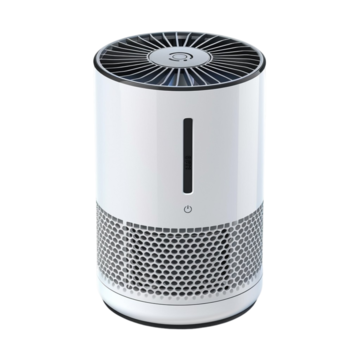
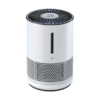
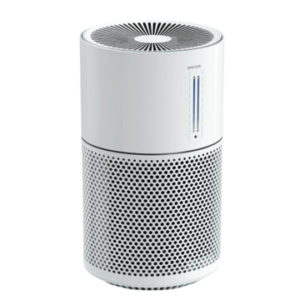
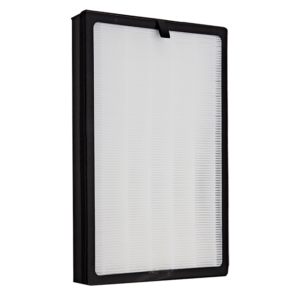
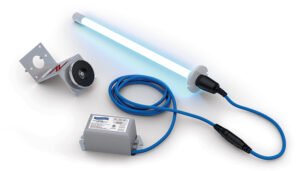
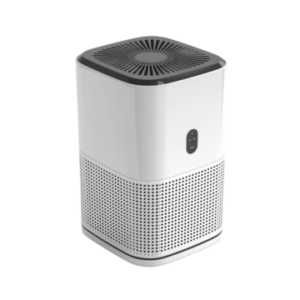
Reviews
There are no reviews yet.